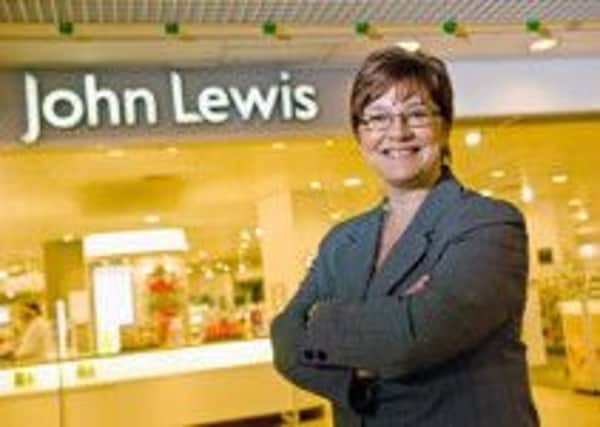John Lewis boss: Worker-ownership can teach lesson


Kim Lowe, the out-going managing director of John Lewis’s Glasgow branch, said that the department store chain has “considerable” checks and balances in place to control remuneration.
Five of the employee-owned retailer’s staff, which it calls “partners”, can be elected to sit on its board – alongside five executive directors and three non-executives – and on its remuneration committee.
Advertisement
Hide AdAdvertisement
Hide AdShe added: “The shareholder culture drives very short-term thinking, because it’s just about deriving shareholder value for the next couple of years. Our model allows a much longer-term view.”
Rows over executive pay saw bosses such as Aviva’s Andrew Moss and Trinity Mirror’s Sly Bailey fall on their swords last year, even though votes on remuneration are only advisory.
From October, Business Secretary Vince Cable will make votes binding, giving investors powers to block excessive pay.
Lowe told Scotland on Sunday that the retailer’s chairman has to present its results to an elected “council” of staff members every year, and members are able to vote to remove him from office, for example if he “suddenly started paying himself silly money”.
The John Lewis group, which also owns supermarket chain Waitrose, has been chaired by Sir Charlie Mayfield since 2007. He earned a basic salary of £825,000 last year – 60 times larger than the average member of staff.
Lowe, who has worked her way up from the shop floor and is due to take over the group’s new flagship store in Birmingham next year, was speaking ahead of the first national “employee ownership day”, which will be held on Thursday to promote the benefits on offer to companies and their workers.
Jo Swinson, the UK minister for employee relations and consumer affairs, said firms that adopt this model can experience lower absenteeism and higher productivity because staff are more committed to the business. Employee ownership is an important and growing part of the UK economy. It helps to create both a stronger economy and a fairer society,” she said.
According to the Department for Business, employee-owned companies generate turnover of more than £30 billion, and Deputy Prime Minister Nick Clegg has been one of the most vocal proponents of the “John Lewis economy”.
Advertisement
Hide AdAdvertisement
Hide AdClegg has pledged that the UK government will set aside £50 million a year to encourage more firms to adopt employee-owned models, along with capital gains tax relief for companies that sell a controlling stake to their staff.
Among the companies that have followed in the footsteps of John Lewis is speech recognition software firm Voice Technologies, which has 24 staff across its offices in Paisley and Sheffield.
Company founder Heather Wylie last month sold a controlling interest to an employee benefit trust for an undisclosed sum, saying that “shared ownership offered a unique and entrepreneurial way forward”.